Study in Europe
Study in Finland
Why Finland?
With one of best performing education systems in the world, it’s no wonder over 14,000 international students have already chosen Finland for study abroad.
Finland continues to eclipse the United States, United Kingdom, Australia, and New Zealand in math, science and reading scores, and as of 2019, Finnish universities were ranked among the top 3 percent globally.
Starting from early childhood, Finnish schools aim to prepare students for the real world, and give them the tools to live a meaningful life. Students are taught through a multi-disciplinary approach that combines self-study, problem-solving and self-development, which ensures a well-rounded learning experience from preschool through university.
While tuition at Finnish universities is free for students from the Finland and other EU countries, tuition fees for international students range anywhere from €6,000-€16,000 per year.
However, there’s no shortage of funding opportunities for education in Finland. Many universities award generous scholarships to international students, which are primarily based on academic merits. Some universities may offer a full ride, but scholarships for a percentage deduction on tuition fees are more common.
Equality and freedom are cornerstones of the Finnish education system. In Finland, all students have equal opportunities to receive a high-quality education, and thanks to the flat hierarchy of Finnish universities, students are usually on a first-name basis with their professors.
Academic freedom is also a core value in Finnish universities. Unlike the United States or United Kingdom, students in Finland have the freedom to decide which modules they’d like to study, ensuring that each student graduates with a diverse body of skills and knowledge.
Finland provides a high standard of living for students and families throughout the country. Not only are the Finnish education and healthcare systems top-notch, but the cost of living is manageable for most students, especially since there are plenty of student discounts for food and transportation nationwide.
Work-life balance is also an important part of Finnish society. Work, study and vacation are prioritized equally, so employees and students are welcome to enjoy the fruits of their labor, kick back and relax with family and friends on their off-hours. Sauna, anyone?
Finland also has zero pollution with world’s cleanest air and almost zero crime rate.
Finland boasts a number of sights, attractions, and natural wonders that’ll feed your wanderlust during any season.
If you’ve dreamed of experiencing the beauty of Finnish nature, you can venture to Lake Saimaa or the Archipelago National Park, and depending on the time of year, you might be lucky enough to catch a glimpse of the northern lights or midnight sun.
Finland also has open-air museums like Seurasaari, Luostarinmäki, and the Suomenlinna fortress for history buffs to enjoy, while others may prefer to visit the Moomin Museum in Tampere, which features exhibits dedicated to these beloved literary characters.
You can even go on a husky safari, or get into the holiday spirit by meeting Santa and Mrs. Claus in Rovaniemi!
Good news for career-minded students — most Finnish universities provide career services for international students. They’re available to lend a hand during your job search, whether you’re looking for a student job, or a full-time position for after you graduate.
In Finland, it’s not uncommon to have a part-time job alongside your studies — according to Statistics Finland, 55 percent of university students reported having an employment contract while studying.
If you’re interested in working part time during your term abroad, your student visa will allow you to work for up to 25 hours per week. Which leads us to our seventh and final reason why you should study abroad in Finland…
For international students who fall in love with Finland and decide to stay post-graduation, you’ll be granted a 1-year post-study visa to cover your stay while you search for a job.
Once you obtain full-time employment, you can go ahead and apply for a work- based residence permit. And work-based residence permits are a foot in the door towards permanent residency — after you’ve worked in Finland for four consecutive years, you’ll become eligible for a permanent residence permit.
So, what do you say? Are you ready to embark on the adventure of a lifetime and study abroad in Finland?
Do you wish to work in Europe as a Registered Nurse or Caregiver?
Studying Bachelor of Nursing in Finland makes you qualified to apply and become a Registered Nurse that can work all throughout Europe.
Practical Nursing courses are also available for those who want to become licensed Caregivers in Finland.
Speak to us regarding this opportunity today!
Info sourced from educations.com
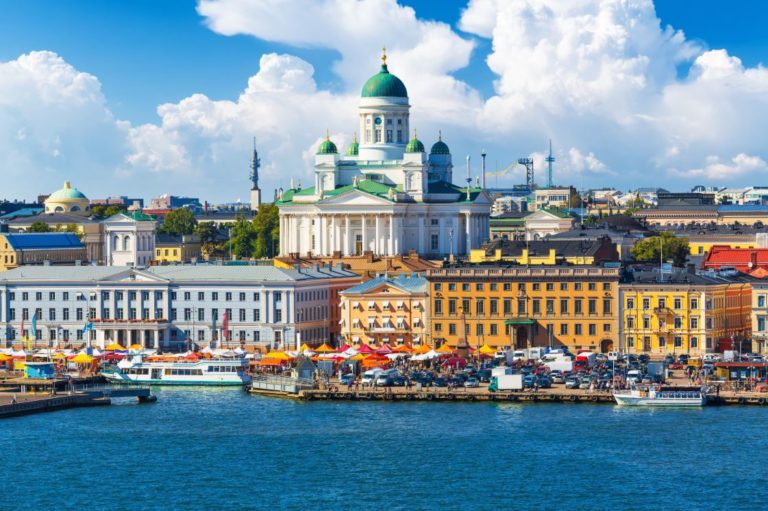







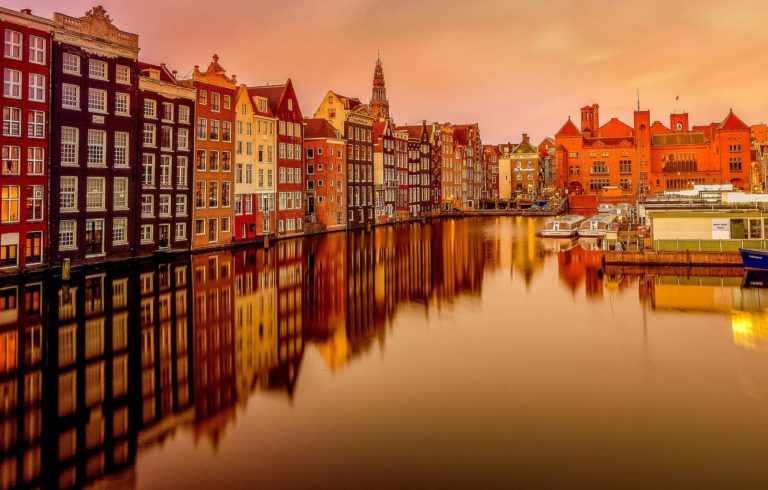

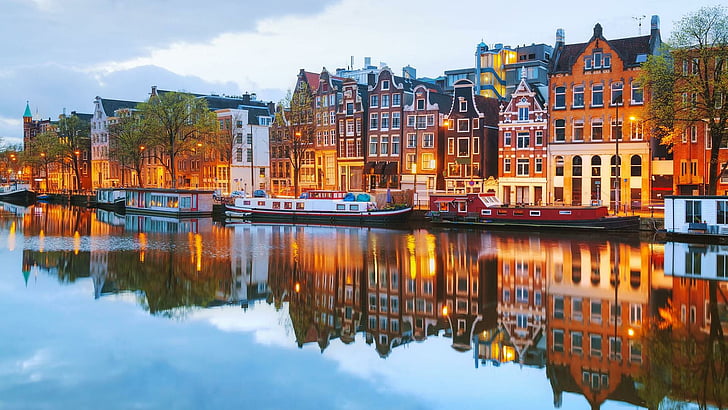
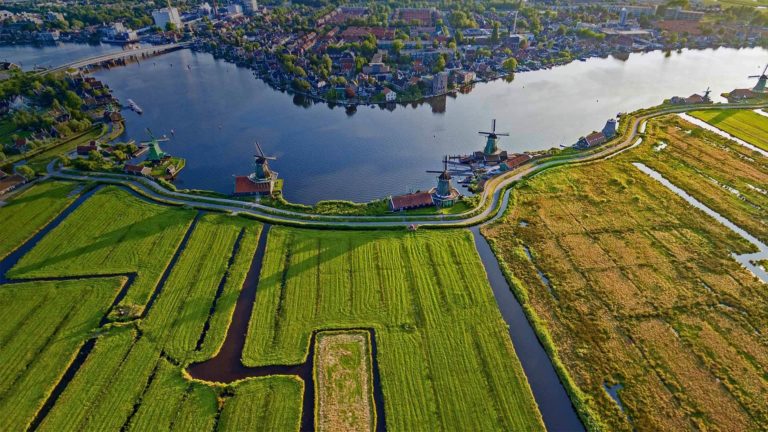
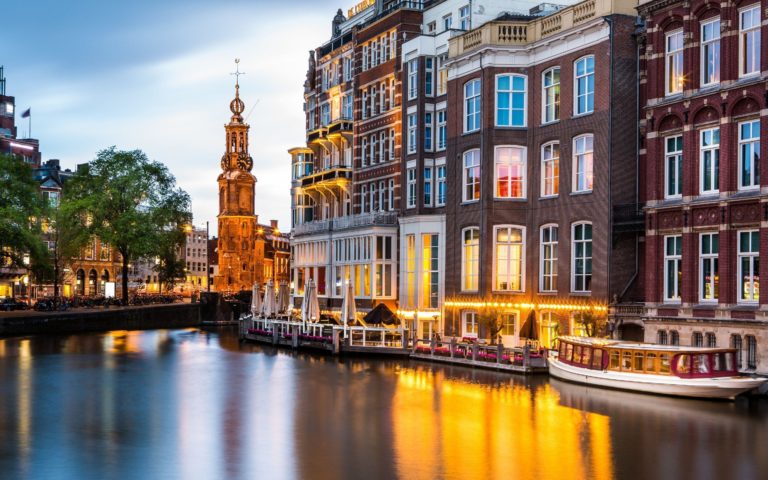
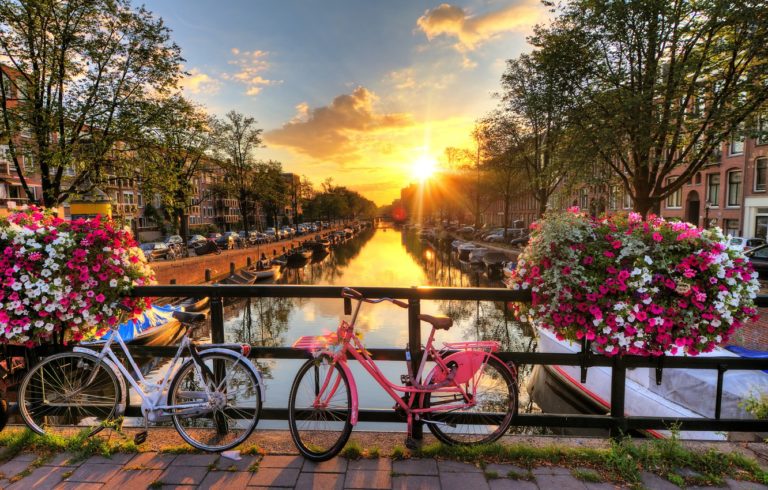

Study in Netherlands
Why Netherlands?
Some may ask “Why study in the Netherlands?” But with boat trips on canals and lakes, lazing on beaches, enjoying the view of the woods, a moderate climate and the crossroads where the German, British, French, Chinese and many other cultures meet, others would say “Why not?”
International students from all over the world come to study in the Netherlands. In 2014/15, international students came from a total of 157 different countries, mostly from Germany, China, Belgium, Italy and Spain. Most Dutch universities have international student associations, which help students throughout their studies.
The Netherlands is also a unique non-Anglophone country, where approximately 95% of locals speak English. This factor makes living, studying, and working in the Netherlands very convenient, comfortable and pleasant for international students. The Netherlands is also very open and tolerant, welcoming everyone to share their opinions and express themselves. This is very much encouraged during your studies.
Studying in the Netherlands is not that expensive, compared with other English-speaking countries such as the UK or US. Dutch higher education is subsidized by the government and tuition fees are relatively low. With the country’s renowned standard of education and comparatively low cost of living, studying in the Netherlands will give you true value for money. Annual tuition fees for a degree program or course at a Dutch higher education institution start at approximately €1,900 for EU students and €6,000 for non-EU students, depending on the institution.
Further, if you decide to have a job alongside your studies, you can also declare these expenses, and get some money back from taxes. How cool is that? In addition, many Dutch universities offer grants and scholarships that can reduce or fully cover the tuition fees of study programs.
The Dutch educational system is of high quality and Dutch universities are acknowledged worldwide for their well-designed, modern courses and facilities. The teaching style focuses on teamwork, which makes it easy for international students in the Netherlands to meet Dutch people as well as other international students.
Dutch universities place a strong emphasis on good personal relations between professors and students. Most tutorials and seminars take place in small groups of around 15-30 students. Most of your coursework will consist of group work, developing not only your academic skills but also your ability to work together as part of a team. Dutch universities include many practical elements in their degree courses. There is a high emphasis on relevant practical experiences, and universities have a lot of partnerships with Dutch companies, as well as international ones.
As well as general universities, there are also universities of applied sciences, which provide more specialized studies. For those who prefer to gain insights into practical issues, a university of applied sciences might be more attractive. These focus more on practical experiences and less on theoretical and research matters.
Compared with other western European locations, the cost of living in the Netherlands is relatively low. From my own experience and from my friends’, you will need between €800 and €1,000 per month. To fund this, you can combine part-time jobs and study finance. If you are a EU student, you can work 32 hours a month and be eligible for a €265 grant and a student OV-Chipkaart for free public transportation either during the week or weekends.
There are many useful websites for students to find student accommodation. I would advise you to start looking for accommodation early, because there is a huge demand. From my experience, if starting studies in September, the best months to start looking for accommodation are May, June and July. Definitely don’t wait until August, as you will end up either finding expensive or low quality rooms.
As a student, you can also get discounts in many bars, restaurants, museums and cinemas. You can get around town easily on a bicycle. This is not only typically Dutch, but also a cheap means of transportation. You should definitely ask for an ISIC Student Card to get many more benefits and discounts.
The Netherlands is known as the first non-English speaking country in which universities started to design higher education study programs in English, to attract students coming from abroad. More than 2,100 English-taught study programs and courses are available in the Netherlands, covering a broad range of fields, and leading to a bachelor’s, master’s, PhD, diploma or certificate.
It certainly does sound great: high-quality, affordable education offered in many disciplines, in an international, open-minded country. However, Dutch universities do have strict language requirements if you come from a country where English is not the native language. As an international student you are required to take the TOEFL, IELTS or a similar English language test. You should check the university where you are planning to apply, for more details about their requirements.
As I mentioned, the Netherlands is a very international country and very convenient as most people speak English. Nevertheless, I think it’s always valuable to take an introductory Dutch language course to at least pick up the basics, and many universities in the Netherlands offer Dutch languages courses for internationals. You can also use other online resources to find language courses, as well as new cool language apps and dictionaries to ease your stay in the Netherlands.
The Netherlands is centrally located in Europe and is in easy reach of all major European cities. The Netherlands is often described as the “gateway to Europe”. It takes only about an hour to fly from Amsterdam to Paris, Berlin, Brussels, or London. It also has great connections and accessibility by train to all major European cities.
The Netherlands also has a well-developed and connected transportation system, and various discounts for students make travelling quite affordable. As mentioned, when working 32 hours a month, you can also get a student OV-Chipkaart, which gives you access to free public transportation. This makes it very convenient and cheap to explore the whole country. Further, you will love how easy it is to get around with a bike – the preferred means of transportation of the Dutch, and also the cheapest. You can cycle in peace, confidence and tranquility, as there are dedicated roads for cyclists.
The Netherlands has also been recognized as a knowledge center with rich study traditions and well-known universities. Scientific research at Dutch universities is very highly valued at both the national and international level. Education in the Netherlands meets all international standards and is well-reputed worldwide. A diploma from a Dutch university provides an opportunity to start one’s own business and can be very useful in terms of having a successful career in any country of the world.
Info sourced from topuniversities.com
Study in Austria
Why Austria?
Austria is widely recognized as one of the most livable countries in the world. Austrians scored high across all the metrics, but the highest levels of happiness came from people living in its capital. Vienna was recently named as the most liveable city in the world for the second year running by The Economist Intelligence Unit (EIU). Vienna scored top marks in economic stability, infrastructure, and education — making this beautiful European capital the ideal place to start an academic career.
Despite its small size, Austria has had an enormous impact on European culture. Austria was home to some of Europe’s most influential intellectuals of the 20th century, including Sigmund Freud.
Austria has some of the best universities in the world. In 2018, seven Austrian universities were included in the QS World University Rankings, with five institutions making it into the top 500. Degrees are also offered in English or German.
Fees for students outside the EU vary depending on where you study. However, they’re still considerably less than in many other countries. There are various scholarship opportunities and financial assistance programs for international students.
Austrian universities welcomes applications from International students. All other international students require a residence permit for stays above six months. You should start your visa application as early as possible and certainly no later than three months before the start of your course. Without a valid student visa, you will not be allowed to enroll.
With a large and diverse student body and a metropolitan, forward-thinking approach, Austria is the perfect place for international students from all over the world. Universities in the country run special introductory programs for international students, giving students a chance to learn about the local customs, make new friends, and find your bearings in your new host country.
Austria also has one of the lowest crime rates in Europe, meaning you are safe to explore all corners of whatever city you decide to study in. And like their close neighbors the Germans and the Swiss, Austrian’s have a well-earned reputation for their efficient and pragmatic approach to civic life. In other words, Austria is one of those countries where everything just seems to work!
Uniquely situated in the center of Europe with borders on eight different countries, Austria is both a physical and metaphorical bridge between nations with very different outlooks on the European project.
Also geographically, basically anywhere you are studying in Austria you will not only be amidst amazing cityscapes and landscapes as it is, you will be a mere hour or two’s trip from many other nations (Switzerland, Liechtenstein, Italy, Slovenia, Hungary, Slovakia, Czech Republic, and Germany).
Info sourced from masterstudies.com
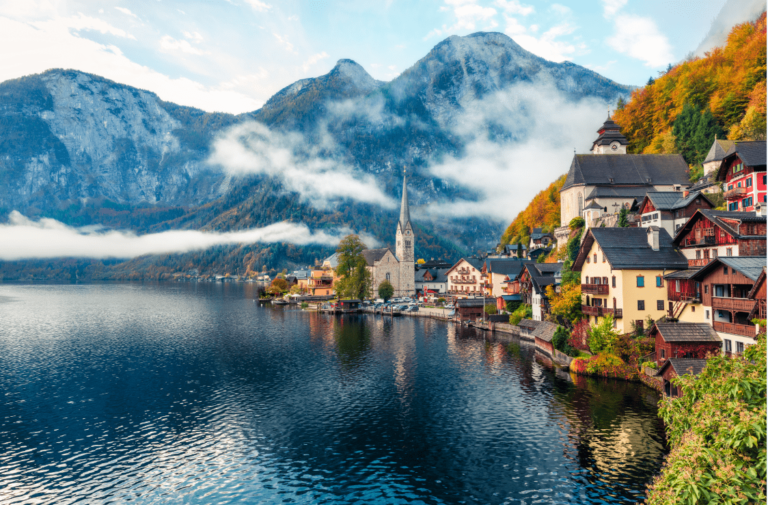
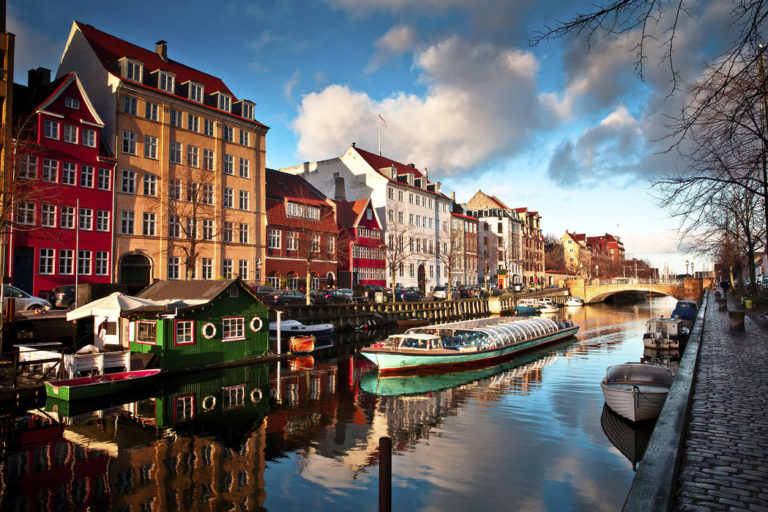
Study in Denmark
Why Denmark?
Denmark boasts a high international student exchange rate with a myriad of courses from which you can choose. It’s also one of the largest centers for research and education in the Nordic countries with top-rated universities.
Denmark was voted the happiest country in the world in April 2016, via the World Happiness Report. To rank the 156 surveyed countries, a team from the University of British Columbia looked at what the “countries have in common: a large GDP per capita, healthy life expectancy at birth, and a lack of corruption in leadership.
But also essential were three things over which individual citizens have a bit more control: a sense of social support, freedom to make life choices, and a culture of generosity.”
Denmark’s results revealed a high percentage of gender equality and residents who love to bike. This contributes to the wellness of the people and the environment.
Students in Denmark are involved in more social interactions surrounding their studies. At the beginning of the year, students are placed into study groups which meet weekly to discuss readings and class work.
There are also traditional events, such as Aarhus University’s “Kapsejlads,” which means Spring Regatta. During this event, students gather around the lakes in the middle of campus for a day of drinking, relaxing, boat races, and a naked run to win tickets to the Roskilde Festival.
Another tradition is Friday Bars, when different departments from the university host wild, themed parties. This brings more fun and variety throughout the school year and is a great opportunity to bond with your classmates.
Another reason to study abroad in Denmark is to experience the country’s unique food culture. For breakfast, Danish folk will often have a dish called “junket crumble” or “ymerdrys.” It consists of crumbled rye bread mixed with brown sugar.
Another morning dish you can experience as a study abroad student is “wienerbred,” a Danish pastry filled with custard. Breakfast is usually the celebration time in Denmark, whereas dinner is the common American celebratory mealtime.
The average lunch consists of cold meats such as roast beef, fish, and sausage on rye bread with toppings.
Dinnertime, or “middag,” is usually eaten at home with the entire family. It used to contain multiple courses, but since the 60’s it has become simplified to one. The traditional gruel, meat broth, or sweet fruit soup is still served today.
American and Italian influences can be seen in Denmark with pastas, barbecues, and salad bars. However, the traditional cuisines outshine any foreign foods served here. As a student, getting to experience these traditional dishes with locals is part of the immersion process.
Perhaps you could try your hand at preparing some and invite a few classmates over. It would show them you are truly interested in their culture and perhaps gain you brownie points among the Danish.
Elk, boars, wolves, and brown bears frequent the terrains of Denmark. However, many other large mammals once found here have slowly gone extinct.
The most common mammals seen include rodents like rabbits, hedgehogs, foxes, squirrels, and the European polecat. Roe deer are also common and roam the landscape freely.
In the summer, many birds migrate to Denmark, such as water fowls, like the stork. There are more than 300 bird species in the country all together.
Marine life also flourishes within the mainland waters and in the North and Baltic seas bordering Denmark. A popular species is the beluga whale, which frequents colder waters.
In order to protect the wildlife, three national parks were established in Denmark, and one was created in Greenland. They are open all year long and at no cost to visitors.
The University of Copenhagen offers an incredible Animal Science program, which is taught in English. Many universities, like Copenhagen, offer work permits for international students.
If you’re studying zoology or an animal related career, the National Park Service may be hiring student help. It would be a great opportunity to work with such unique wildlife.
Denmark sits just above Germany and contains many islands around the mainland. Norway and Sweden are not too far off to the north, and may be an easy trip to take on a weekend. The lands are generally flat, but now low enough to have a lot of swampland. The coastlines are beautiful and the islands surrounding are densely populated.
The outdoor activities which can be found here are unique and fascinating to international students. Caving is a popular activity in Jutland, where three abandoned mines are now open to the public. Amber, or Nordic gold, hunting is common along the coastlines. Forest dinners, or what Americans would call “campfires,” are popular events.
Mountain biking is available in many of the parks around Denmark and rentals are cheap. On the water, seal and porpoise watching is a huge tourist attraction.
Denmark is a gold mine for students wishing to study history, anthropology, geography, the social sciences, and many more. It boasts an abundance of historical sites and museums, which showcase thousands of years of culture and tradition of the Nordic people.
Rosenborg Castle in Copenhagen was built by the famous Scandinavian king, Christian IV, in the early 17th century. It holds the crown jewels of the Danish king and queen as well as the portraits of Caroline Mathilde and Struensee.
For those seeking contemporary thrills, The Tivoli Gardens is also situated in Copenhagen. It is one of the most popular amusement parks in Europe. It’s even said to be the base model for Disney Land.
For Viking lovers, the Viking Ship Museum is located in Roskilde near the university. There you can book tickets to sail in a true Viking’s ship and experience how they traversed the waters with their incredibly advanced boats.
Info sourced from hccmis.com
Study in France
Why France?
When it comes to finding the right course, international students are spoilt for choice. France has more than 3,500 public and private learning institutes, including 72 universities, 25 multi-institute campuses, 271 doctoral schools, and 220 business and management schools. What’s more, it has a host of specialist universities, such as 22 schools of architecture and over 227 engineering schools.
“Studies in France are before anything a high level of education,” says Ratiba Elkebir, an international business developer and graduate of Pierre et Marie Curie University and Ecole Nationale de Commerce Bessières. “It’s direct access to multiculturalism, with a large choice of specialties and exchange programs with EU and non-EU countries. Institutions in France are more and more digitalising courses and contents for more accessibility. Being a foreign student in France is a great package with several advantages such as transport, health, housing, entertainment, sport, and more.”
Paris is a hotbed for innovation and tech-startups. In fact, it’s becoming one of the go-to places in Europe for savvy entrepreneurs looking to secure that all-important seed investment.
A list of 2020’s most exciting French startups includes companies that are breaking new ground in AI, cloud-computing, podcasting platforms, digital marketing, and travel. Moreover, some of these exciting ventures are tackling some of the world’s biggest challenges, including climate change. For example, BlaBlaCar is a carpooling platform that helps people share travel costs and reduce the amount of traffic on French roads. All this means there are many career opportunities for graduates, and if you’ve got a great idea that you want to get off the ground, then France could be the place to make it happen!
France is also an excellent destination for hospitality graduates interested in careers in hospitality & tourism. With french cuisine highly sought after around the world and France being one of the top tourist places, it’s the ideal place to study hospitality!
Tuition fees at public universities in France are set by the government and are significantly lower than in other European countries.
Public university fees for those outside the EEA are higher, although they still offer excellent value compared to other popular international study destinations. An international student from outside the EEA will pay around €5k – 10k per year.
In 2019, France was ranked the seventh richest country in the world, with an annual GDP growth rate of somewhere between 1.3-1.7%. This was down to significant public and private investment, positive consumer habits, and economic reforms that enhanced market flexibility and production levels in the manufacturing and agricultural sectors.
Like most other countries, France is currently facing a period of economic uncertainty due to the outbreak of COVID-19. However, before the global pandemic began, France was in an excellent position, which bodes well for its future recovery. The Internal Monetary Fund believes the French economy will shrink by 7% during the remainder of 2020 but should then regain over 4% of that in 2021, taking national GDP back up to around $2,867 billion.
Students with ambitions to work in market-leading companies and organizations should definitely think about heading to France. The country is home to Orange, one of the largest mobile service providers in Europe and Africa, as well as cosmetics giants L’Oreal, which oversees more than 30 luxury brands, including Maybelline and Diesel.
AXA insurance, which provides policies for over 100 million customers worldwide, is also based in France. It isn’t the only major financial institution where you can make a mark and earn a very generous salary; credit group Agricole and BPCE bank both have bases in France. Or, you could land a graduate role at BNP Paribas, the French international banking group that won a “Top Employers Europe” award in 2018.
International students in France have a rich cultural environment to explore. Students in or near Paris can visit iconic sights like the Eiffel Tower or see paintings by the European grandmasters hanging in the Louvre Museum. Alternatively, they can enjoy a coffee in the cafes on the Left Bank, then stroll the same streets once frequented by great philosophers and writers, including Jean-Paul Sartre, Ernest Hemingway, and Samuel Beckett. And then there’s the French food and drink to savor, which includes delicious wines, tasty cheeses, buttery croissants, and classic dishes like Coq Au Vin and Chicken Cordon Bleu. Although you’ll probably be getting by on a student budget, you can still soak up that famous Parisian sophistication with some window shopping at the fashion boutique along the Champs-Élysées.
French isn’t just one of the most romantic languages in the world; it’s also one of the most useful. With 276 million French speakers worldwide, it’s the official language in 29 countries, including some that make up a fifth of all global commerce. This makes it the third most common business language, and students who learn how to write and speak French will significantly improve their chances of landing a great job after graduation.
With so much to offer, it’s no surprise that thousands of international students head to France every year. It’s a country where you can get a great education, launch a successful career, and experience the best of European culture.
Info sourced from bachelorstudies.com

Study in Ireland
Why Ireland?
Ireland has many top-notch schools, and you will find programs in every degree and field across the country. You really can’t go wrong in Ireland!
Ireland is a popular study abroad location, so you will have the chance to meet and network with students and professors from around the world. Regardless of your field of study, you’ll find an excellent education in Ireland!
Why study abroad in Ireland? Upon your welcome to the Emerald Isle, you’ll know why. Ireland earned this nickname because of its lush, green landscapes. Rolling emerald hills and steep cliffs are some of the images that come to mind when we think of Ireland. Ancient castles and historic buildings (and many sheep!) dot the landscape, adding a touch of whimsy to this beautiful country.
Ireland has a whole lot jam-packed into a relatively small space. From the famous Cliffs of Moher to the unique landscape of Giant’s Causeway—and all the beauty in between—Ireland is a visually stunning experience. One study abroad in Ireland tip is to make sure you set the time and energy aside to explore the nature that Ireland has to offer. It’s so worth getting out of the major cities and into nature here.
One of the best parts of studying abroad in Europe is that pretty much every country can be the gateway to your next European backpacking adventure. With so many top travel destinations nearby, Ireland is the perfect jumping off point if you want to explore further afield in your spare time—that is, if you end up running out of things to explore within the country (we doubt that will happen!).
Travel within Ireland is also exciting, and you can reach many landmarks within a few hours’ drive or a quick flight from major cities. One of our top study abroad in Ireland tips is to take some time off to take a road trip around the country. As one of the best activities to do in Ireland, you will be rewarded with some of the most dreamy views in the world!
Ireland has a quickly-growing economy, and that means quickly growing work opportunities! Most student visas allow students studying abroad in Ireland to work a certain amount of hours while studying. This means you can offset some of your study abroad costs while you are studying abroad! Two birds with one stone, anyone?
The fact that Ireland is an English-speaking country is very helpful in the search for a part time job. Student jobs are available in many cities, so you can earn some extra cash on the side for your travels. If you wish to continue working in Ireland, the country also has working holiday arrangements with many countries.
Ireland is considered a safe country and has a low violent crime rate. As a student on one of your first solo adventures into the world, this is a comforting thought! Plus, as a relatively new traveler, safety will be a huge priority (although, it should always be!). And Ireland has you covered. If you happen to run into any unsavory situations, the most likely scenario is petty theft or pickpocketing. Just make sure you pay attention to your surroundings and remain vigilant (especially at night), and you will be a-okay in Ireland!
Studying abroad in an English-speaking country means that there is no language barrier to navigate. This makes settling in much easier! You have all the perks of living abroad and experiencing a different culture, but you are already equipped with a tool to navigate it all: language.
Of course, regardless of how easy or difficult it is to adjust, feelings of homesickness can rear their ugly heads. It’s all part of the ups and downs of adjusting to living in a new country! Luckily, with a common language, you can hopefully find someone to talk to who knows the feeling. Remember: It will pass!
Yes, it’s English. No, you might not understand it. And that’s part of the fun! Studying abroad in Ireland means you will learn some Irish slang. To get you started, you should probably learn the word craic (pronounced “crack”). Before your mind wanders too far, craic is pretty much slang for fun, entertainment, or lively conversation; it’s another word for just generally having a good time! It can also be used as a greeting. If someone asks you “what’s the craic?”, it’s just a way of asking “how are you?” or “what’s happening?”, or asking what fun stuff is going on in your life!
Info sourced from goabroad.com

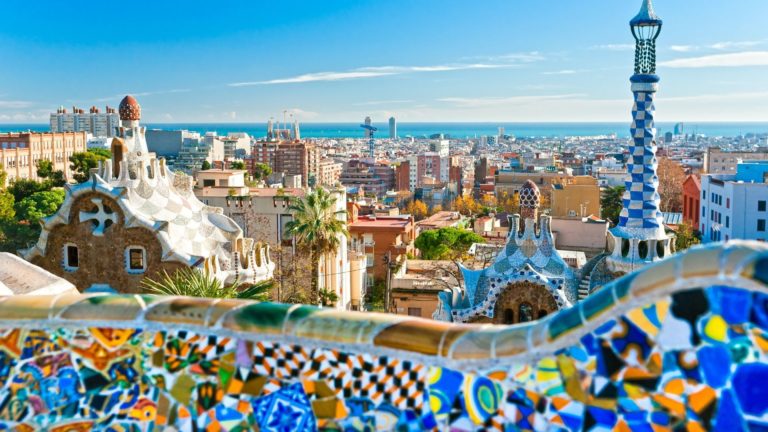
Study in Spain
Why Spain?
Stunning blue skies, a burning bright sun, dry, dusty days or balmy summery nights can cause you to need an ice-cool sangria or sparkling mineral water to quench your thirst. Spain equals one word – sunshine – to most sun-worshipping or sun-deprived visitors. The magnificent light and the natural heat are two of the main reasons why international students choose to study in Spain. In recent decades the mercury has been hitting the high 40s (degrees centigrade) in summer but outside of those months the country still has a good year-round climate especially in the south that sees retired people warm their bones in the starry winter months. A land of spectacular sunrises and sunsets is to be found in Iberia and it’s all down to its sunshine. One popular destination, Marbella in Andalucia, has a microclimate that sees it receive only about 30 days or rainfall a year!
Variety in outdoor pursuits is a key reason why such a broad range of students choose to study in Spain every year. Where else in any one European country can you find all sorts of imaginable healthy outdoor activities – beachside from paddle-boarding, scuba diving, volleyball, body surfing, water-skiing and wake-boarding to banana boating, swimming and sailing. Inland the hills offer hiking, walking or biking, swimming in turquoise lakes or skiing and snowboarding opportunities on snow-capped mountains. The country also boasts a long tradition of horses and equestrian activities. Add to that the country’s successes in international soccer, golf and tennis tournaments of late and you are definitely in a place that is positively in love with all that an active, outdoor lifestyle can offer the young and young at heart who choose to study in Spain.
If the day-time life is filled with health and fitness oxygen highs and kicks then the nightlife is also intoxicating in its hot and hip offerings. Spain is the country of choice for party-goers – from its traditional festivals and fairs to its trendiest cool clubs – the country is the capital of dusk-til-dawn dance culture. Ibiza, Barcelona, Madrid, Seville and Marbella are just five of the must-visit, chic places in Iberia that offer options from beachside beats to groovy tunes in air-conditioned, city dance clubs. From tapas bars to cocktail bars, pubs to clubs there is a wide range of Spanish socialising and partying to be experienced in a place that is a party paradise here on earth for those who select to study in Spain.
For years health gurus promoted the benefits of the Mediterranean diet. A diet full of olives and olive oil, lemons and citrus fruits, vegetables, nuts, seeds, legumes, fish and seafood and less dollops of dairy, meat and processed foods along with a glass or two of red wine were in vogue. For that alone who wouldn’t want to study in Spain? But qualitative research into the longevity that people experience in Mediterranean countries showed that it wasn’t their diet alone but also the lifestyle that goes with it that accounts for example for why Spanish people live longer than their EU counterparts, according to a 2015 Eurostat study. Included in the lifestyle are sharing meals with family or friends, walking in the outdoors, shopping for smaller quantities of fresh food daily, laughter, sunlight and sunshine.
Spain was for years identified with tapas and paella and has up until now played a cinderella role to its world-famous gourmet neighbour to the north. But the trend for television foodie programmes, books and websites opened up its world of foods. A slew of award-winning restaurants have put Iberian gastronomy firmly on the world map with visitors flying in to celebrate its food and to mark those special events in life in this culinary paradise. Its food culture also makes for a great experience for gourmand students who choose to study in Spain. In the most recent Opinionated About Dining awards for Europe four of ten top spots were garnered by Spanish chefs. (2) Azurmendi east of Bilbao and (7) Etxebarri both in the Basque country, (8) Diverxo in Madrid and (10) Restaurant Quique Dacosta in Dénia, Alicante garnered the prestigious places with the latter featuring “culinary expressionism and modernist Paella” on its menu.
Spain’s reputation as a safe and secure country for holidays was initially popularised by the glitterati but has been celebrated by millions of holidaymakers ever since. Its tourism product was developed in the 1960s and 70s and has gone from strength to strength despite blips caused by either economic upswings or downturns. Spain’s extensive anti-terrorism provisions – which evolved in response to internal violence – saw it well placed to deal with international anti-terrorism efforts in the wake of the September 11 attacks in 2001 and others since. The counter-terrorism measures of the UN Security Council’s Resolution 1373 which created the Counter Terrorism Committee to monitor states’ compliance, has seen active participation and expertise from Spain. All governments since have carved out a two-pronged role at combining anti-terrorism efforts with respect for human rights provisions. The rising threat of terrorist attacks in Europe and other Mediterranean resorts saw it and Portugal deemed safer destinations by global security experts in 2016. The Spanish government’s rigorous approach to security is another reason why students prefer to study in Spain.
Going to university at undergraduate or post-graduate level boosts job prospects, a 2014 EU study showed. Apart from the educational, cultural, social and other soft skill benefits of studying abroad a foreign university stay not only opens minds to all kinds of new experiences away from the student’s home but it utterly promotes labour market mobility. The research found that the risk of long-term unemployment halved for mobile students – those who moved to study or learn in other countries – compared to those who had stayed at home for third-level studies!
Info sourced from miuc.org
Study in Germany
Why Germany?
German universities offer excellent teaching and research, ranking among the best in the world. You will earn an internationally renowned degree, giving you excellent prospects on the global labour market.
Universities in Germany now all operate under the Bologna reform, which ensures all students get a unified and internationally recognized degree such as bachelor’s, masters or PhD.
- BA/BSc equals 6 semesters of study
- MA/MSc equals to 2-4 semesters, depending on the program
- PhD equals 4-6 semesters, depending on the program
This applies to most academic disciplines, except for medicine, law and pharmacy. In these subjects students are still educated in the traditional way; a state exam is conducted at the end of studies, and the course lasts a few more semesters than an ordinary bachelor’s degree.
Studying in Germany not only comes for free, but you can also do it in English if your German language skills are not so good. English is an international and widely spoken language, taught as a second language in the majority of schools around the world. A fresh start in a new country, a new university AND a new language can be tougher than you think; therefore you might want to go easy on yourself and take up an international program taught in English while your German language skills advance, and then perhaps switch to studying in Germany.
Many international students tend to look for a job to support themselves while studying. Students from non-EU countries have to apply for a work permit, and their working hours are limited to 190 full days or 240 half days per year.
Students from countries outside of the EU, EEA or Switzerland are not permitted to work freelance or self-employed. However, this has seldom been an issue since Germany is a very well-developed country where the economy supports thousands of new jobs every day, giving the majority of international students the possibility of finding a decent job.
It’s worth mentioning that practice-oriented universities in Germany have agreements with great companies, providing students with internships. These may not always be paid, but could lead to a great future job after obtaining your degree.
In comparison with other countries, Germany is a safe country. In town or in the countryside, by day or by night, you can move around freely here. Germany offers economic and political stability, which makes it an ideal place for you to study.
Finally, after studying in Germany, you’ll have the chance to stay on and seek work after you graduate. The law allows international graduates to stay for an additional 18 months to seek work, and you may even end up staying longer, if that is what you wish.
Info sourced from study-in-germany.de

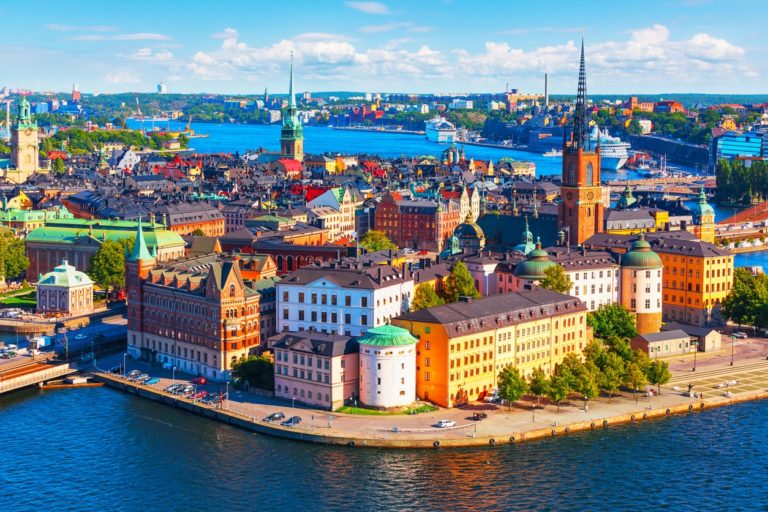
Study in Sweden
Why Sweden?
Academics are top-notch at Sweden, offering world-class degrees in several fields. There are 14 public universities and a number of independent institutions in Sweden.
Academics in Sweden place more emphasis on practical learning rather than learning from a textbook, where you’ll learn how to apply your knowledge in real-world contexts.
Students are taught how to develop creativity and innovative thinking to find solutions to problems, which gives them the ability to think outside the box and makes them job-ready upon graduation.
International students fro the EEA, the European Union, and the Nordic countries don’t have to pay for tuition at Swedish universities.
For those outside these countries, tuition fees range from USD $8,000 to USD$15,000 per academic year, which is lower than the average tuition fees in the UK and US.
As Sweden places a lot of emphasis on cleanliness and sustainability, you’ll enjoy fresh air and beautiful, well-preserved landscape when you study abroad in Sweden.
Even the Subway stations are a sight for sore eyes, with one hundred stations featuring unique art on the platform or walls.
There is no shortage of beautiful spots to visit in Sweden, from the Stockholm Archipelago to Jokkmokk, a fairytale town located in Lapland, Sweden’s northernmost province.
In the summer months, you can enjoy plenty of outdoor activities such as hiking and kayaking, or simply taking leisurely strolls through the green parks scattered around cities.
International students are allowed to work while studying in Sweden for up to 40 hours a week, allowing you to fund your expenses while finishing up your degree.
When you graduate, you’ll be able to apply for an extension of your current residence permit (student visa) to look for a job, or even examine the possibilities of starting your own business, for up to six months after the completion of their study programme.
There are also plenty of internships for international students at top corporations such as IKEA, Tetrapak, Volvo, Oatly and Spotify for you to gain valuable work experience. Sweden is also a start-up hotspot based on the innovative work culture in the country.
If you’re a fan of the food at IKEA’s restaurants, you will never go hungry when you study in Sweden. Swedish food is often comforting and savoury, using plenty of herbs like dill and ingredients like sour cream.
Enjoy delicious local dishes such as Swedish meatballs, raggmunk (a Swedish potato pancake fried in butter), marinated salmon with dill potatoes, crispbread, chives and sour cream. You may find that you even enjoy the famed pickled herring, the most basic Swedish dish.
Those with a sweet tooth will enjoy traditional Swedish crepes, waffles, cakes, pastries, cookies, dessert soups and much more offered at bakeries and cafes.
Swedes are also very health-conscious, so you’ll also find plenty of restaurants and cafes that will cater to different dietary needs. There are several vegan and vegetarian restaurants in Stockholm with the growing popularity of plant-based dining.
Info sourced from studyinternational.com
Study in Norway
Why Norway?
Despite being a small country Norwegian universities and university colleges deliver quality education which also international exchange and degree seeking students benefit from. Studying in Norway will improve your career possibilities, both at home and abroad.
However, chances are high you might be surprised by the informal atmosphere on campus. Teachers are easily approachable, tuition often takes place in small groups and as a student you are encouraged to develop a critical mind. We believe this is the best way to prepare you for the future.
A number of degree programmes and courses are taught in English. Non-native-English students will see that their English skills improve during their studies in Norway, while native-English students will not get bored. A high level of English in the society in general makes it easy to both study and live in Norway.
Combine studies with amazing outdoor adventures. Experience the Aurora Borealis (“Northern lights”), the midnight sun, the fjords, the mountains and…..we could go on forever. Nature is never far from wherever you are located in Norway.
Or you could just simply enjoy the fresh air, clean water and lots and lots of space. As a student in Norway you will never be short of possibilities for unique nature experiences. Make sure you make the most out of it; it may well be your once in a lifetime experience!
Norway is a modern society. Equality is a value deeply rooted in the Norwegian society and is rooted in both legislation and tradition. On campus students benefit from high technological standards and services, modern facilities and equipment, as well as innovative teaching. Norway is also seen as a safe society – you can feel secure almost wherever you are.
What are you waiting for? Explore your Study in Norway opportunities today!
The crime rate in Norway is low. Very low. Allowing for the massive difference in population size, the US has ten times more prisoners and eight times as many murders per year. The reasons are complex, but you can trace them to the point where culture meets politics: Norway is run as a social democracy.
Apart from anything else, this means that the distribution of wealth — and Norway is a wealthy nation — is much fairer than in some other nations. More importantly, social responsibility is collective, so a crime is, for many people, understood as a responsibility of the community rather than the failing of an individual. The aim is to rehabilitate prisoners rather than punish them – albeit that the nature of that rehabilitation is sometime contentious, even among Norway’s benevolent populace. In short, your student days in Norway are relatively likely to go unmarked by crime or police harassment.
Info sourced from studyinnorway.no & bachelorstudies.com

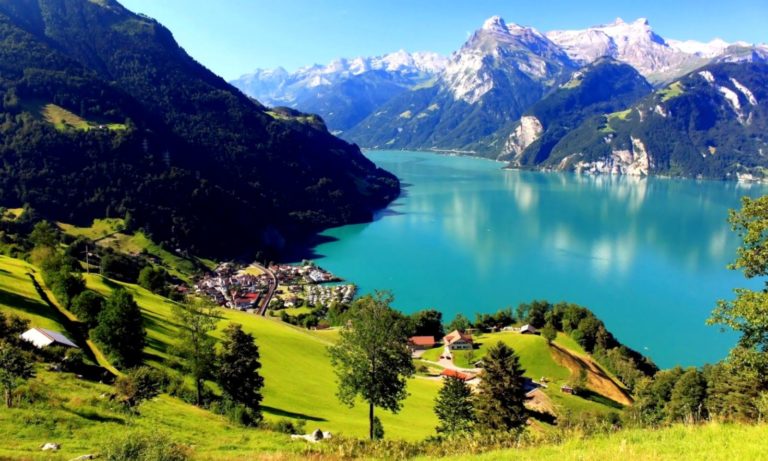
Study in Switzerland
Why Switzerland?
Besides the knowledge and skills that you gain throughout your academic journey, what’s the cherry on top is the degree you receive when finishing your studies as a reward for your hard work. Since Switzerland has a highly regarded educational system, a degree from one of its universities will open many doors in your career in any place of the world.
Switzerland is known for its multilingualism and cultural diversity. It has 4 official languages, German, French, Italian, and Romansh. As a developed and peaceful country, Switzerland is the second home of immigrants from different parts of the world. Living and studying in this place, you’ll have the chance to befriend people of many cultures and be exposed to many different languages.
According to a survey by educations.com, Switzerland ranked second as the best place to study abroad in Europe in 2020, based on factors such as career achievement, personal development, and access to higher-quality teaching.
Whether you are a nature lover or more of an appreciator of art, architecture, and crafts, Switzerland offers you a wide variety of options of entertainment to explore on your days off. The nature of Switzerland, with its mesmerizing mountains, lakes, and rivers, is a perfect getaway from the stress of your student life. During warm summer days, you can go for a hike on one of the peaks, ride a bike along the trails, or canoe in the river; in the winter you can ski and snowboard down the gorgeous Swiss mountains.
As for the art lovers, visiting the museums, theatres, and operas of the country will surely be a pleasant experience. The Swiss are also known for their fine chocolate and cheese, so you do not want to miss the chance to have a taste of them and other national Swiss foods while you’re here.
Switzerland has a reputation for being a peaceful, clean, economically developed, and forward-thinking country. The country has maintained its neutrality in times of war, and with its strict laws and respectful citizens, it has remained a peaceful place nowadays as well. The safety in Switzerland is very high, the country has a very low crime rate and most of the crimes are mild.
Swiss healthcare is one of the best in the world. The majority of people that live in Switzerland have good health, that is because of the well-developed health system. Another aspect in which Switzerland is well-developed is the economy. With low unemployment and poverty rates, and high salaries, Switzerland is a great place for you to build a career after your studies.
It’s not easy to decide which university to decide to apply to but, as you can see, Switzerland does give plenty of reasons for you to choose one of its universities.
Switzerland is famous for its world-class hospitality, tourism, culinary and patisserie courses. They also offer renowed business courses with many specializations!
Info sourced from studyinginswitzerland.com
Study in Lithuania
Why Lithuania?
Lithuania is ranked 59th by U.S. News and World Report’s most recent higher education rankings. Home to 24 colleges and 22 universities offering a comprehensive spectrum of internationally recognized academic programs and qualifications, Lithuania’s colleges and universities conform with the Bologna Process of the European Higher Education Area — an indicator of quality all over the world. According to U-Multirank’s international comparison of higher education systems, Lithuania performs especially well in measures of regional engagement and teaching and learning.
While Lithuanian colleges and universities do charge tuition fees, they are generally lower than you would find in popular international study destinations such as the US and UK. Additionally, international students are eligible to apply for Lithuanian state scholarships. Students also have access to many cost-saving benefits, including the Lithuanian Student Identity Card (LSP), International Student Identity Card (ISIC), and Erasmus Student Network (ESN) card.
The cost of living in Lithuania is cheaper than 54 percent of the countries in the world, according to Expatistan. And public transportation in Lithuania is also inexpensive, as are utilities and sports and leisure activities, according to Cost of Living Reports.
Lithuanian people are known for their welcoming, friendly attitudes. Many of them are also bilingual. One American told Lithuanian Radio and Television (LRT) of his time in Vilnius, “You have one of the most beautiful cultures and the most beautiful people in the world. My experience is that the Lithuanians are very welcoming and happy to introduce themselves and their country to foreigners. These features are well reflected in the business market, where understanding and trust are the most important characteristics. I think this explains why Lithuania is suitable for business and it has one of the most promising economies in the world.” This viewpoint was shared by Canadian Cynthia, who, as well as praising the country’s castles, history, and culture, said, “All the people I met in Lithuania were nice, open, friendly and hospitable.”
Lithuania earns high marks for quality of life. It’s been ranked first in the CEE region (Central and Eastern Europe) in the Green City Index and is also known for its world-class health infrastructure and level of safety. While its cities have been compared to the likes of Copenhagen, Barcelona and Cape Town, Lithuania also well-known for its breathtaking green spaces and peace and quiet. “Outside its cities and towns, Lithuania’s greatest asset is its nature. This is a country of fresh, verdant pine forest and calm, clear lakes, where escape to the countryside is never more than 30 minutes from your door,” says Lietuvos Respublikos Vyriausybės Oficiali svetainė.
Lithuania boasts a rich heritage and vibrant modern culture. The old town of capital Vilnius is on the UNESCO World Heritage List, while the country’s diverse population celebrates many international events and festivities throughout the year — many of which have been influenced by neighboring nations.
Travel writer Jim Dobson says of discovering the “magical” bucket list-worthy country of Lithuania, “Everything in Vilnius works with symbiotic energy, with a youthful and vibrant art scene mixed with a historic, architectural presence that honors its past. […] From its offbeat bars and cafes to its medieval churches, just walking through the city filled with German gothic, Italian Baroque and French classicist architecture, and Russian Orthodox domes open your senses.”
Love a good meal? You’ll absolutely find it in Lithuania. “It might take some time to get used to Lithuanian food, but once you do, you won’t be able to live without it! From potato dishes like cepelinai or kugelis to desserts like šakotis, Lithuanian food never fails to impress. So, let’s not pretend that food is not an important factor while choosing a place to live and agree that Lithuania has an upper hand over most other locations in the world,” enthuses Culture Trip.
Info sourced from masterstudies.com

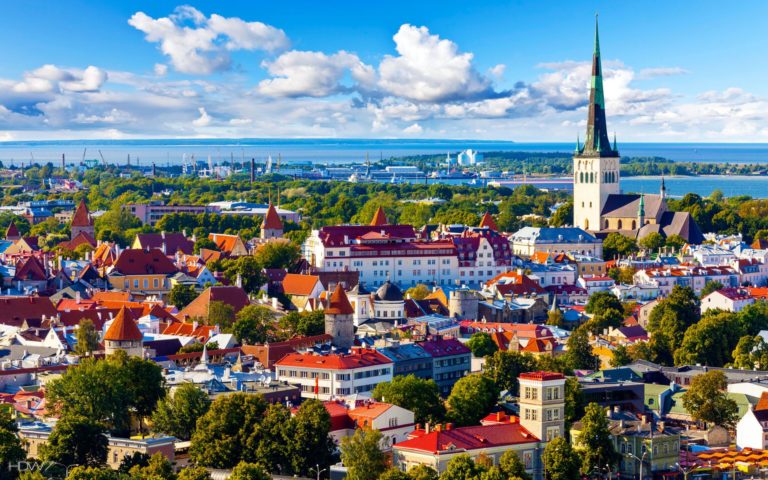
Study in Estonia
Why Estonia?
Among international students, Estonia is still a rather recent discovery and the number of international students is growing by nearly 20% every year. The student body is quite diverse – there are students from neighbouring countries, such as Finland, Russia, and Latvia, from other European countries, such as Germany, Italy, UK etc., and from other countries all over the world, such as the USA, Georgia, India, China, and so on – all together from 90 different countries. All of them can choose between 140 degree programmes taught entirely in English.
Estonia has very affordable living costs – The Business Insider has listed Estonia as home to two of the most affordable European cities to live in (Tartu and Tallinn). The same can be said about studying in Estonia – there are many scholarships and tuition-free programmes available, especially at the Master’s level.
In addition to being affordable, Estonia also has reasonable conditions for students to look for a job. International students are allowed to work full-time during their studies, as long as it does not interfere with their education. Taking up a job does not require a separate permit – if an international is allowed to study, it automatically ensures the right to work.
Students are also allowed to stay in the country for six months after graduation to look for employment. It is not always easy to find a job if you do not speak the local language; however, most Estonians do speak English and the field for English-speaking positions is growing. There is an annual work fair organised specifically for foreign students, which also helps bring together companies and students.
Living and studying in Estonia is more comfortable for students because Estonia is a highly digitalised community. It is very common to declare your taxes online (in 2 minutes), make bank transfers via mobile phone, or do your weekly grocery shopping without ever leaving home. Children as young as 7 years are taught the principles and basics of coding; computer usage is generally widespread in all fields of life.
The Republic of Estonia is the first country to offer e-Residency — a transnational digital identity available to anyone in the world interested in administering a location-independent business online. This technology enables secure and convenient digital services that facilitate credibility and trust on the Internet. Estonia already has thousands of e-residents, including Angela Merkel, Chancellor of Germany.
Estonia is also famous for its start-ups – it takes just five minutes to register a company and, according to The Economist, the country held the world record for the number of start-ups per person in 2013 (many Estonian start-ups are now successful companies that you may recognise, such as Skype, Transferwise, GrabCAD, and others).
Based on success stories, Estonian universities have developed new unique programmes that focus on high-tech education (e.g. cyber security, e-governance technologies and services, digital learning games).
Forests cover more than half of Estonia, which is quite rare in Europe and in the world (2016 Environmental Performance Index, ranks 180 countries). The country also features isolated islets, beautiful lonely beaches, and deep untouched forest areas. Wherever you are, you can get to wilderness in less than 30 minutes.
Having a low population density and more room for every person does not mean being lonely as a human being. On the contrary, it allows Estonian universities to use a more personal approach to engage each student in the study process. Thanks to its small population, Estonia also has less bureaucracy in universities and in government in general.
Info sourced from mastersportal.com
Chat with our staff now
Email Us
Make Your Dreams Come True!
Head Office
Suite 1017, 1 Queens Rd,
Melbourne, VIC 3004.
Australia.
Ph: +61 3 9863 7828
M: +61 435 907 420 (Whatsapp available)
E: melbourne@firstecinternational.com.au
Our Services
- Migration Services
- International Students
Office Locations
- Australia
- Philippines
- Singapore
- UAE
- India
- Finland
Copyright FIRSTEC International 2021Ⓒ. Designed & Developed by Bab Studios. All rights reserved.

